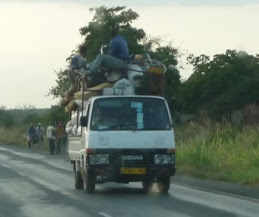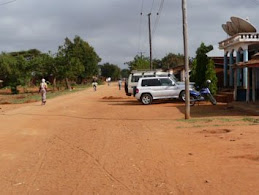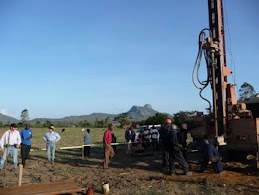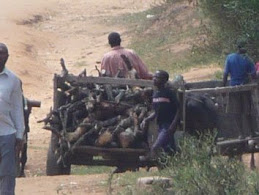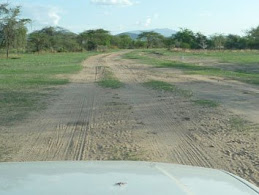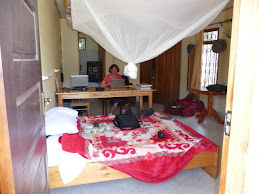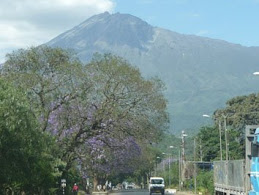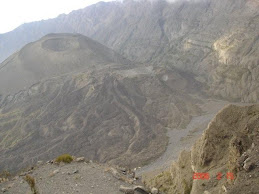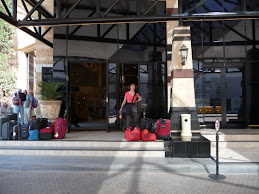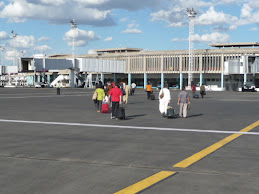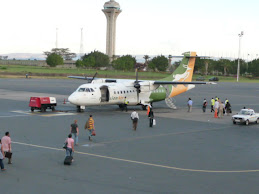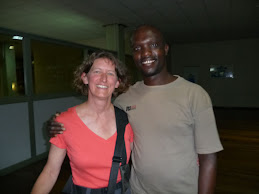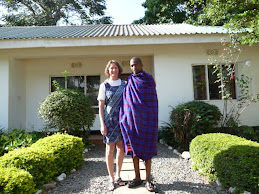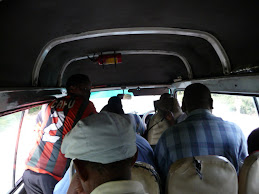Ross Headifen has found that being a volunteer in a developing country can give you a different perspective on the world.
My wife Ramona and I were recently given a copy of a 2009 National Geographic article about an African tribe called the Hazda. The article was, as you would expect, well written, with lots of great pictures, describing a people who still follow their ancient ways. The Hazda, the article explained, are a society of hunters who live off what they can kill with their bow and arrows – they do not farm or grow crops. They live in small, 2m-diametre domed huts made from sticks leaning together, with wide leaves – or perhaps a plastic sheet – to offer protection from the rain.
To most readers, it would seem amazing – here is an exotic tribe living a life of extreme hardship in a remote area that would surely take at least three days of different kinds of travel to get to. It sounded as if they’d probably never seen a European before – or only rarely. How could there still be people like this in the world?
As we discovered, though, the reality is slightly different.
We had been working on an assignment with VSA (Volunteer Service Abroad) in Arusha, Tanzania, for 18 months or so when we decided to go camping for the weekend with some other volunteers.
We chose Lake Eyasi in the middle of Northern Tanzania, about four hours drive from Arusha. For those that have not been there, Arusha is a reasonably modern, mid-sized African town. It has plenty of shops and services, some nice restaurants, and many tourist facilities for excursions to the famous game parks in Northern Tanzania.
The road to Lake Eyasi is sealed, with the exception of the last 40 km. At the end of this rough dirt road you find the lake, and a nice – but primitive – camping ground. You can buy basic items like drinks and snacks at the camp entrance; there is also a bar.
A few kilometres down the road is a typical dusty Tanzanian rural village, with people going about their daily lives, farming animals, growing crops, and running basic shops. The kids go to school, while teenagers play pool in the shade.
We hired a guide and drove for just 30 minutes or so out into the dry bush, where we found a Hadza (or Hadzabe) village. Just as the writer of the National Geographic article had described, its inhabitants were scantily-clad, and they were living a very basic existence on the sand in crude lean‐tos.
The men let us try their bows and arrows to shoot at targets. They smirked when we tried to draw the bows back – we found it hard to pull them back even halfway, yet the Hazda men seem to do it effortlessly. They even hold the bow fully-drawn for a few moments while they wait for their prey to get into the right position.
Meanwhile, the women, who were sitting in another group, offered to sell us colourful little bracelets. We took some of them for a ride in our Landrover further into the bush to a sacred rock, where a plant grows from which the Hazda people extract poison for their hunting arrows.
The people we met were very friendly, very welcoming. They were also keen to sell us anything they could in exchange for money. They use this money to buy steel arrow-heads from another local tribe, the Datoga, who are farmers and blacksmiths rather than hunters. Sometimes they take the money to the local village to buy a coke, or a new pair of shorts – you get the picture.
In other words, stories about remote people living a lifestyle untainted by modern civilisation can, for a volunteer in the field, be just another interesting side trip not too far away from their volunteer home.
The National Geographic will always be a great magazine, but next time you read about an exotic culture or a remote location, remember that they may not seem that way to a volunteer.
Volunteering – it will change your perspective.
Subscribe to:
Comments (Atom)
































































































































